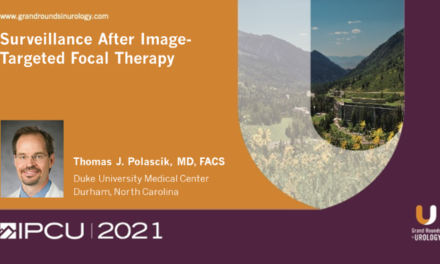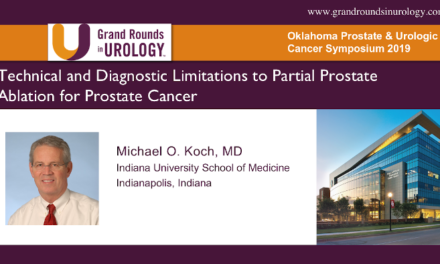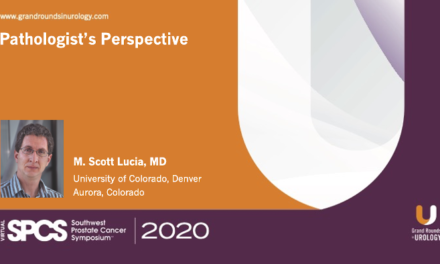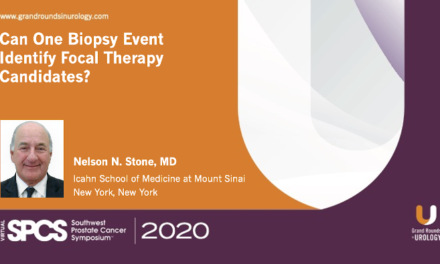Nelson N. Stone, MD, presented “Does the Radiation Dose Required to Eradicate Local Disease Differ by Gleason Grade Group?” during the Southwest Prostate Cancer Symposium 2020 virtual conference in December 2020.
How to cite: Stone, Nelson N. “Does the Radiation Dose Required to Eradicate Local Disease Differ by Gleason Grade Group?” December 2020. Accessed Apr 2024. https://dev.grandroundsinurology.com/does-the-radiation-dose-required-to-eradicate-local-disease-differ-by-gleason-grade-group/
Does the Radiation Dose Required to Eradicate Local Disease Differ by Gleason Grade Group? – Summary
Nelson N. Stone, MD, Professor of Urology, Radiation Oncology, and Oncological Sciences at the Icahn School of Medicine at Mount Sinai and at the Derald H. Ruttenberg Cancer Center at Mount Sinai, discusses the radiation dose requirements for local disease eradication and the implications for focal therapy. He presents studies of external vema radiation and brachytherapy, which both showed that as the radiation dose increased the likelihood of a positive biopsy decreased two years post treatment. Dr. Stone concludes that it does not matter what type of disease the patient has, it matters how much radiation is used to get rid of the disease. Longer term follow up is needed to see the impact of radiation doses. Post-irradiation biopsies imply that a BED of over 240 Gy can eradicate all prostate cancer. If a tumor is small then there is a potential for a high dose of radiation just to the affected regions. Larger tumors or cases with extensive multifocality will require a full dose treatment with a full or partial implant.
About the Southwest Prostate Cancer Symposium 2020 virtual conference:
Presented by Program Chairs Nelson N. Stone, MD, and Richard G. Stock, MD, this virtual conference educated attendees about advances in the management of localized and advanced prostate cancer, with a focus on imaging, technology, and training in the related devices. It included a scientific session, as well as live demonstrations of surgical techniques. You can learn more about the conference, including the 2021 iteration, here.






